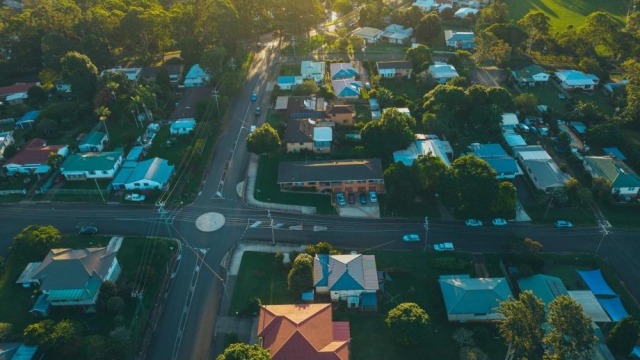Opinion: Could Dutton's suburban strategy still work?

By Mark Kenny
A version of this article was originally published by The Canberra Times.
The fourth and final election debate became ropey at times and while Peter Dutton punched on landing his lines more crisply than the PM, Seven's handpicked audience of 'undecideds' marked the conservative down for his negativity, liking Anthony Albanese more.
At 50 per cent to just 25, it is hard to recall a more emphatic debate win. What does this have to do with the price of eggs, you ask?
Well, neither leader could answer that particular grocery detail when asked, although Albanese crept closer - aided to be fair, by Dutton's initial under-estimation.
While intriguing, debate verdicts are merely snapshot responses, subjective and fleeting.
The value of this one is that it confirms a clear pattern suggesting Albanese has it in the bag - either a minority Labor government or even a majority.
However, it is far from over. Recall 2019 when Bill Shorten's success was assured. Bookies even paid out.
As Labor's campaign spokesperson Jason Clare said on Monday, the result on Saturday, May 3 could well come down to "a couple of thousand votes" spread across a small number of seats.
Yes, this is Labor girding against complacency. But it is also literally true.
Far removed from the main media gaze, outer-urban and regional seats on decent Labor margins remain fiercely contested.
There, Liberal candidates are fighting hard, backed up by vast resources and saturation signage from head office and armed with a brace of cost-of-living give-aways designed to salve inflamed hip-pocket nerves.
And on social media, away from the front pages and TV news bulletins, memes and messages are flying thick and fast, tailored for different voter categories and calibrated to the specific sensibilities of competing social media platforms.
For voters hit hard by high mortgage rates, rising rents and substantial fuel bills associated with long daily commutes, Dutton's unsubtle pitch may be cutting through, read by many as recognition, at the very least, of their quotidian struggles.
Some, perhaps many, will be enticed by the promise of petrol being 25 cents a litre cheaper, and by a "Cost of Living Tax Offset" Dutton says will reach 10 million people.
"The policy will see eligible Australians earning up to $144,000 receive up to $1200 in tax relief when they lodge their tax return for the upcoming financial year," his policy document says.
The innocuous words "up to" are probably doing a lot of the lifting here. The benefit for a lower-income earner definitely warrants closer inspection.
But for those suburban-regional voters who answer with an angry "no" to Dutton's rhetorical question, "Are you better off now than you were three years ago?", a solid drop in petrol prices and a tax cut - even if both are temporary and transparently election-motivated - will focus attention.
Voting for these one-offs means voting against Labor's two-stage cut to the lowest marginal tax rate, which would cement long-term tax savings.
At the National Press Club last week, three pollsters discussed the clear trend in opinion polls across the country, which charts a steady Labor recovery in 2025.
It is a surprising turnaround from the dominant theme for the year leading into this election period, which had Dutton ahead of Albanese as preferred PM and consistently showed the Coalition in a stronger position.
Labor's rise has consolidated in the campaign. The most recent Newspoll puts the governing party up 52-48 and gives Albanese a more than handy 16-point lead over Dutton as preferred PM.
At the national level, Dutton's campaign has been error-prone with three backflips - on the prospect of tax cuts, work-from-home, and electric vehicle tax concessions - and rhetorical lapses from frontbenchers invoking the unpopular Donald Trump in one way or other.
These difficulties speak to disorganisation and perhaps desperation but backflips per se tend to animate close observers more than average voters. The deeper problem is the sense of unreadiness they convey.
Dutton is pursuing a brutal retail politics which is less about details and more about feelings. Heavy on fear and complaint, it is old-style hand-to-hand combat adapted to digital means. As such, much of it is subterranean with culture war grievances muttered sotto voce - i.e. quietly rather than openly.
If the pollsters have it wrong, as they famously did when missing support for Brexit and Trump in 2016 and for Scott Morrison in 2019, it will be because they could not measure the depth of grievance or the penetration of granular micro-campaigning.
Pollsters have adjusted their techniques since 2019, and among other changes, now stress test their quantitative data (numbers) against qualitative research, such as words and sentiments adduced from focus groups.
Along with everyone bar the Coalition, they'll be hoping the night reveals their sophisticated survey techniques are up to the task of measuring intentions in a fast-fragmenting digital polity.
Mark Kenny is the Director of the ANU Australian Studies Institute and host of the Democracy Sausage podcast.








